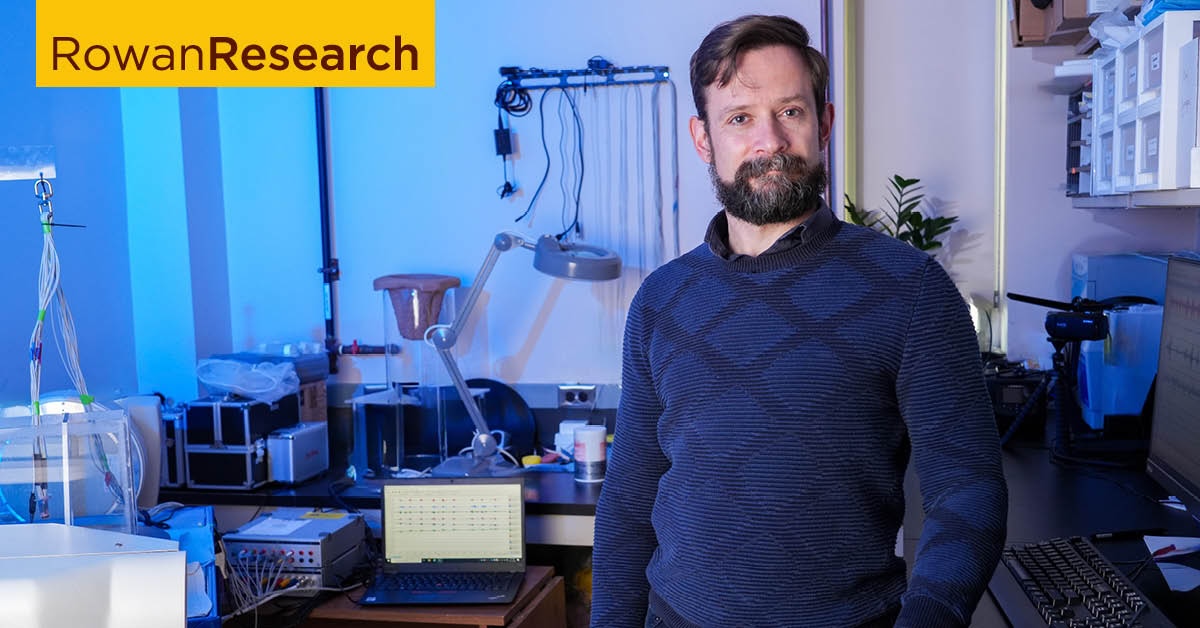Studying throat malfunctions to better treat patients
Studying throat malfunctions to better treat patients

François Gould, Ph.D.
Physiologist
Areas of expertise:
Comparative physiology, anatomy, neuromuscular function in Parkinson’s disease, dysphagia
More informationThe illogical anatomy of the human throat—with the breathing tube located in front of the passageway to the stomach—makes swallowing a complicated and risky business. More than 25 muscle groups, guided by six different nerves, work together to move a bite of food safely past the windpipe and into the esophagus. A mistake can cause choking, or allow food to enter the lungs, which, if it happens repeatedly over time, can lead to pneumonia.
“It's a cobbled-together system,” says François Gould, Ph.D., an assistant professor in Rowan-Virtua School of Osteopathic Medicine’s Department of Cell Biology & Neuroscience and a former paleontologist who studied the evolution of mammals. “We have inherited it from animals that didn't have to worry about breathing as much as we do—that’s what it boils down to.”
This legacy has enormous implications for disease. Swallowing malfunctions in many conditions, including those that affect control of the muscles, like Parkinson’s disease and developmental disorders, as well as in other conditions that specifically affect the mouth and throat. Even so, difficulties in swallowing receive little dedicated attention within medicine.
Gould seeks to understand the neurological and muscular changes that cause swallowing problems, with the aim of better treating them in a variety of disorders. One such project, funded by the National Institutes of Health, focuses on swallowing dysfunction in Parkinson’s disease. This research is exploring why increasing the chemical signal dopamine in the brain—the conventional treatment for Parkinson’s—doesn’t address this less-recognized symptom of the disease.
Working with rodents, his team is examining neurological changes that occur early versus later in the disease’s progression. Separately, the team is comparing the effects of Parkinson’s-like damage in different brain regions. Any swallowing-specific changes they uncover could point the way to new therapies, Gould says.
Rowan University researchers are passionate about what they do. Find more at Meet Our Researchers.